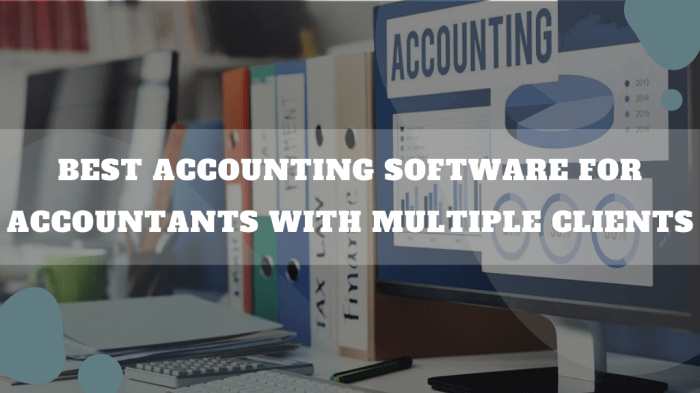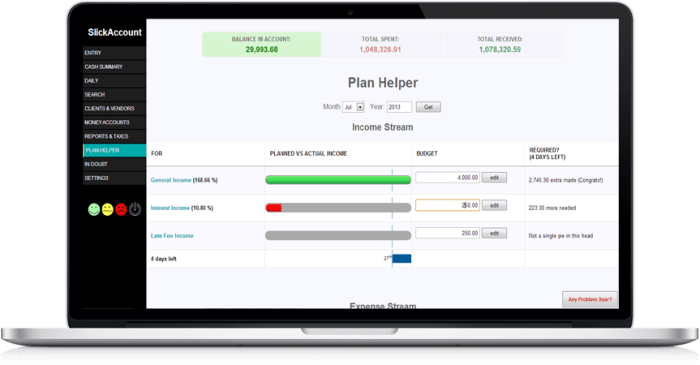Accounting software one time purchase offers a compelling alternative to subscription models. This approach provides upfront cost certainty, eliminating recurring monthly fees and allowing for budgeting predictability. However, it’s crucial to weigh the initial investment against potential long-term maintenance and upgrade costs. Understanding the software’s capabilities and ensuring compatibility with your future needs is paramount before committing to a one-time purchase.
Factors to consider include the software’s features, its scalability to accommodate business growth, and the availability of ongoing support. While a one-time purchase might seem cost-effective initially, a thorough evaluation of these aspects will ensure a smooth and productive accounting experience, preventing future headaches.
Choosing the right accounting software is crucial for any business, regardless of size. While subscription-based models are prevalent, one-time purchase accounting software offers an attractive alternative for certain users. This comprehensive guide explores the benefits, drawbacks, features, and considerations involved in purchasing one-time accounting software, helping you make an informed decision.
Understanding One-Time Purchase Accounting Software
Unlike subscription-based software that requires recurring monthly or annual payments, one-time purchase accounting software involves a single upfront payment for a perpetual license. This means you own the software outright and can use it indefinitely, without further fees. This model can be particularly appealing to businesses with limited budgets or those anticipating minimal software updates.
Key Features to Consider, Accounting software one time purchase
- Basic Accounting Functions: Look for software that handles core accounting tasks like invoicing, expense tracking, bank reconciliation, and financial reporting. The level of detail and sophistication will vary depending on the software.
- Inventory Management: If your business handles inventory, ensure the software supports tracking stock levels, managing purchase orders, and calculating cost of goods sold (COGS).
- Payroll Processing: Some one-time purchase options include basic payroll features, but more comprehensive payroll solutions often require separate software or integration.
- Reporting Capabilities: Robust reporting is vital for financial analysis. Check if the software generates customizable reports, including profit & loss statements, balance sheets, and cash flow statements.
- Tax Compliance: While the software might not handle tax filing directly, it should generate reports compliant with relevant tax regulations.
- Multi-Currency Support: If you conduct international business, multi-currency support is essential for accurate financial record-keeping.
- Scalability: Consider your future growth. Will the software accommodate your expanding business needs, or will you need to upgrade later?
- Customer Support: Even with a one-time purchase, adequate customer support is vital. Check for available resources like online documentation, FAQs, and phone/email support.
- Integration Capabilities: Does the software integrate with other business applications you use, such as CRM or e-commerce platforms? Seamless integration streamlines workflows.
- Operating System Compatibility: Ensure the software is compatible with your operating system (Windows, macOS, etc.).
Benefits of One-Time Purchase Accounting Software
- Lower Initial Cost (Potentially): The upfront cost can be lower than several years of subscription fees, making it attractive for budget-conscious businesses.
- Predictable Expenses: No recurring costs means easier budgeting and financial planning.
- Ownership: You own the software license, providing peace of mind and control.
- Offline Access (Often): Many one-time purchase options allow offline access, unlike some cloud-based subscription services.
Drawbacks of One-Time Purchase Accounting Software
- Lack of Updates: One-time purchases often lack regular updates, potentially leaving you with outdated features and security vulnerabilities.
- Limited Support: Customer support may be limited compared to subscription-based software with ongoing support contracts.
- Potential for Higher Long-Term Costs: While the initial cost might seem lower, the lack of updates might necessitate purchasing new software down the line.
- No Cloud Access (Usually): Most one-time purchase options are desktop-based, limiting accessibility from multiple locations.
Choosing the Right One-Time Purchase Accounting Software
Selecting the best software depends on your specific needs and budget. Consider the following factors:
- Business Size and Complexity: Small businesses with simple accounting needs might find basic software sufficient, while larger businesses require more advanced features.
- Industry-Specific Requirements: Some industries have unique accounting requirements; ensure the software caters to your industry’s regulations.
- Technical Expertise: Choose software with a user-friendly interface if your team lacks extensive accounting knowledge.
- Future Growth: Consider your business’s potential growth and select software that can scale with your needs.
Alternatives to One-Time Purchase Accounting Software
While one-time purchase software has its place, explore alternatives:
- Subscription-Based Software: Offers regular updates, better support, and often cloud-based accessibility. Examples include Xero, QuickBooks Online, and FreshBooks.
- Open-Source Accounting Software: Free to use but might require technical expertise for setup and maintenance. Examples include GnuCash and Manager.
Frequently Asked Questions (FAQ): Accounting Software One Time Purchase
- Q: What happens if the company that made my one-time purchase software goes out of business? A: You’ll still own the software license, but support and future updates are unlikely.
- Q: Can I use one-time purchase accounting software on multiple computers? A: This depends on the software’s license agreement. Some allow installation on multiple machines, while others restrict it to a single computer.
- Q: Are one-time purchase accounting software solutions secure? A: Security varies depending on the software. Ensure you choose a reputable vendor and check for security features like data encryption.
- Q: What are the best one-time purchase accounting software options available? A: The “best” option depends on individual needs. Research available options and compare features before making a decision.
- Q: How do I upgrade my one-time purchase accounting software? A: You’ll likely need to purchase a newer version from the vendor or consider switching to a different software.
Conclusion
One-time purchase accounting software can be a cost-effective solution for some businesses, but it’s crucial to weigh the benefits and drawbacks carefully. Consider your long-term needs, budget, and technical capabilities before making a decision. Thorough research and comparison shopping are essential to finding the right software for your business.
References
While specific software recommendations are avoided to prevent bias, researching reviews on sites like Capterra and Software Advice is highly recommended before purchasing any accounting software.

Source: navicasoft.com
Call to Action
Ready to find the perfect accounting software for your business? Start your search today and streamline your financial management!
Ultimately, the decision of whether to opt for accounting software with a one-time purchase hinges on a careful assessment of your specific business needs and long-term financial projections. While the upfront cost is attractive, thorough research and consideration of future scalability and support are crucial for making an informed decision that aligns with your business goals. By weighing the pros and cons, businesses can confidently choose a solution that optimizes both efficiency and cost-effectiveness.

Source: amazonaws.com
Clarifying Questions
What happens after I purchase the software?
You typically receive access to download and install the software. Support may vary depending on the vendor; some offer limited support, while others may provide community forums or paid support packages.
Are updates included in a one-time purchase?
Usually, no. Major updates or new versions are often sold separately, or may not be available at all. Check the vendor’s terms and conditions carefully.
Can I return the software if I’m not satisfied?
Return policies vary significantly. Some vendors offer a limited refund period, while others do not offer refunds. Review the vendor’s return policy before purchasing.
What types of businesses benefit most from a one-time purchase?
Smaller businesses with stable, predictable accounting needs may find one-time purchases more cost-effective. Businesses anticipating rapid growth or frequent changes in accounting processes might be better served by subscription models.
